Press Reviews
September 2021
International Media Digest
TENSIONS ERUPT IN NORTHERN KOSOVO,
CRISIS OVER EU-BROKERED DEAL
Tensions between Serbia and Kosovo escalated again in September, paving the way to one of the most severe crises the Balkans have witnessed in years. Only an EU-facilitated agreement ended a tense standoff at their border after more than ten days.
The Kosovo government triggered the row by banning cars with Serbian licence plates from entering Kosovo. Kosovo unilaterally declared itself independent from Serbia in 2008. A significant Serbian population still lives in the country, mainly in the North. Belgrade does not recognise Kosovo as independent. The two capitals, Pristina and Belgrade, are conducting an EU-led dialogue to reach an agreement for normalising their relations, with no concrete results for a decade.
Until recently, vehicles with Serbian licence plates or with the old KS (Kosovo) sign, issued by the UN administration of Kosovo and used mainly by Serbs, could enter Kosovo freely, passing through the custom points at the border between Serbia and Kosovo. However, the government in Pristina decided to forbid those types of vehicles to enter Kosovo, imposing the use of temporary or permanent ‘Republic of Kosovo’ (RKS) plates. On the other side,
Serbia does not recognise Kosovo licence plates with the letters RKS and imposes to owners of vehicles with the letters RKS to use temporary plates when entering Serbia. For that reason, Pristina says the ban is a justified reciprocal measure.
Kosovo sent its special police force and armoured vehicles in the tense and mainly ethnic-Serb area in the North to implement the ban. In the meantime, Kosovo border police started to force drivers with Serbian plates to take temporary RKS plates on arrival after paying a tax and insurance. The move enraged hundreds of ethnic Serbs, which blocked roads in the North that are leading to Jarinje and Brnjak, two of the main border crossings with Serbia.
Although the Serbian protests in the North have been peaceful and Kosovo police refrained from using force against demonstrators, political tensions reached at their highest levels in years. Kosovo Prime Minister Kurti defended the move, saying that “either we will keep both types of these (provisional) license plates for both countries, or let Kosovo and Serbia remove them.”
On its part, Serbia and Serbs in Kosovo spoke openly of a “provocation.” Belgrade demanded the “withdrawal of all troops” of Pristina “from northern Kosovo” and the Serbian President, Aleksandar Vucic, asked for “the return to the situation as it was before this intervention” after an emergency meeting of the top security body in Serbia. In the meantime, the Serbian army was put on a heightened alert while Serbian military planes and vehicles were observed near the border with Kosovo. In the North of Kosovo, NATO also stepped-up patrols.
The crisis de-escalated on 30 September, after strong diplomatic Negotiators from Belgrade and Pristina finally agreed on an EU-brokered deal after two days of discussions in Brussels. The two parties agreed that Kosovo special police units deployed in the North of Kosovo are removed simultaneously with roadblocks and barricades set up by Serbian demonstrators, with NATO troops being deployed near Jarinje and Brnjak to guarantees security and freedom of movement. Furthermore, Belgrade and Pristina agreed on a temporary ‘sticker’ regime for car licence plates. Stickers will be put over national symbols on plates until a permanent solution will be reached, within six months, through a Working Group with representatives of Serbia, Kosovo and the EU.
VIOLENT PROTESTS SHAKE MONTENEGRO
Nationalists, self-declared patriotic groups and supporters of the opposition clashed with police in the town of Cetinje, in Montenegro, ahead of the inauguration of the new main representative of the Serbian Orthodox Church in the country, the Metropolitan Joanikije.
Montenegro, already part of NATO and a candidate for the EU membership, split from Serbia through a peaceful referendum in 2006. However, a third of its 620.000 population still identifies itself as Serb. The Serbian Orthodox Church (SPC), the dominant religious institution in Montenegro, also represents a significant source of division, with many in the country accusing the SPC to serve the interests of Belgrade.
The decision of the SPC to hold the ceremony of the Metropolitan’s enthronement at a historical monastery in Cetinje sparked new tensions in the country. Once the royal capital of Montenegro, Cetinje is considered by many in this Balkan nation as the cradle of Montenegrin independence and as a symbol of its national identity. Opponents of the inauguration saw it as a provocation and threat to Montenegrin independence.
Thousands of demonstrators blocked the roads leading to Cetinje before the ceremony, waving Montenegrin flags and shouting “this is not Serbia.” They were backed by the Democratic Party of Socialists (DPS) of the current President Milo Djukanovic. The DPS lost the last elections to a broad coalition of pro-Serbian forces in 2020 for the first time in three decades. Djukanovic has been one of the leading supporters of a controversial law that, in 2019, aimed to pass hundreds of important Serbian Orthodox monasteries and churches under state ownership. The law provoked tensions and protests which lasted several months before they were amended by the current government, led by Prime Minister Zdravko Krivokapic, who is seen by the opposition as having too close ties with the SPC and Serbia.
Djukanovic is also an ardent supporter of the small autonomous Montenegrin Orthodox Church, headquartered in Cetinje, not recognised by Belgrade and the Ecumenical Patriarch. Serbia and the SPC are trying to dismiss “Montenegro and Montenegrins, as well as the integrity” of the country, the Montenegrin president accused. Djukanovic could even face sanctions for promoting the protests against the inauguration. The Montenegrin Parliament supported an initiative to demand the Constitutional Court rule on whether Djukanovic violated his constitutional role “by calling for conflict.”
The government in Podgorica pledged to protect the inauguration of Joanikije from the possible attacks of protesters. Police used tear gas and sonic cannons against demonstrators and to remove roadblocks. Notwithstanding the appeals for calm and “multi-ethnic, inclusive and democratic Montenegro” by the EU and the United States, violent clashes between protesters and the police occurred in Cetinje. More than ten people were arrested, and at least 50 were injured. Joanikije was forced to arrive in Cetinje by helicopter under police protection, together with other Serbian bishops.
The incidents in Cetinje could exacerbate the existing tensions between Serbia and Montenegro and lead the country, already weakened by a prolonged political instability, to a severe crisis. “The events laid bare how religion and nationalism have split Montenegrin society, and potential violence is simmering,” the head of the Friedrich-Ebert-Stiftung in Belgrade, Max Brändle, noted.
Further News and Views
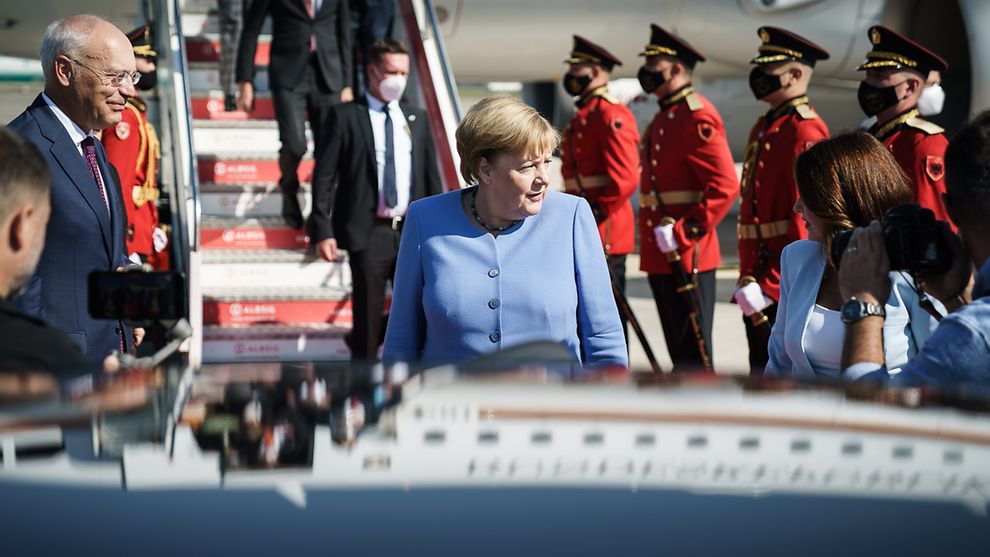
Merkel bids farewell to the Balkans, integration as a common strategic goal
Outgoing German Chancellor Angela Merkel said that the EU enlargement to the Balkans is an “absolute geo-strategic interest” both for the region and Europe, but admitted that the area has still a “long way” to go before entering the bloc. Merkel made her remarks during a farewell trip to the Western Balkans before her mandate as Chancellor expires. Merkel warned about the delays in the EU integration process and the lack of reforms in the region. “I hope that we will soon get some momentum back in this entire process,” the Chancellor added, noting that the EU was not “fast enough” thus opening the door to the influence of external powers in the region.
Radio Free Europe, The Associated Press
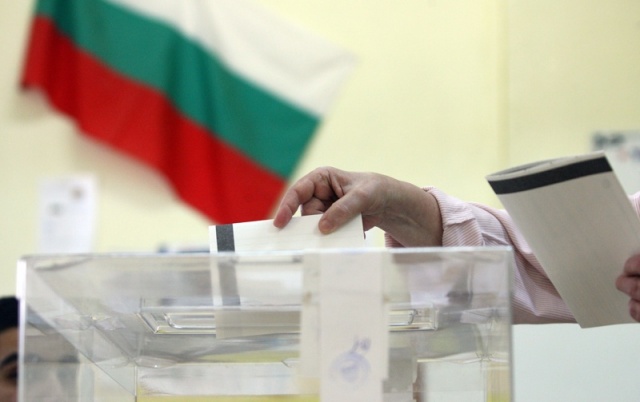
Bulgaria will hold third election in 2021, veto against Skopje remains
After the last attempts of forming a majority failed, Bulgaria will head to the third parliamentary elections this year. General and presidential elections will be held together on 14 November. The EU country had already voted in April and July. Yet, the most prominent parties failed to produce a coalition government every time, leading to instability and to a profound political crisis. Without a political government in power, the current Bulgarian veto against the EU integration process of North Macedonia will persist at least until autumn. The EU and the United States are increasing pressures on Sofia over a bilateral dispute that “affects us all,” told US Special Envoy for the Western Balkans, Gabriel Escobar.
Euronews, Euractiv
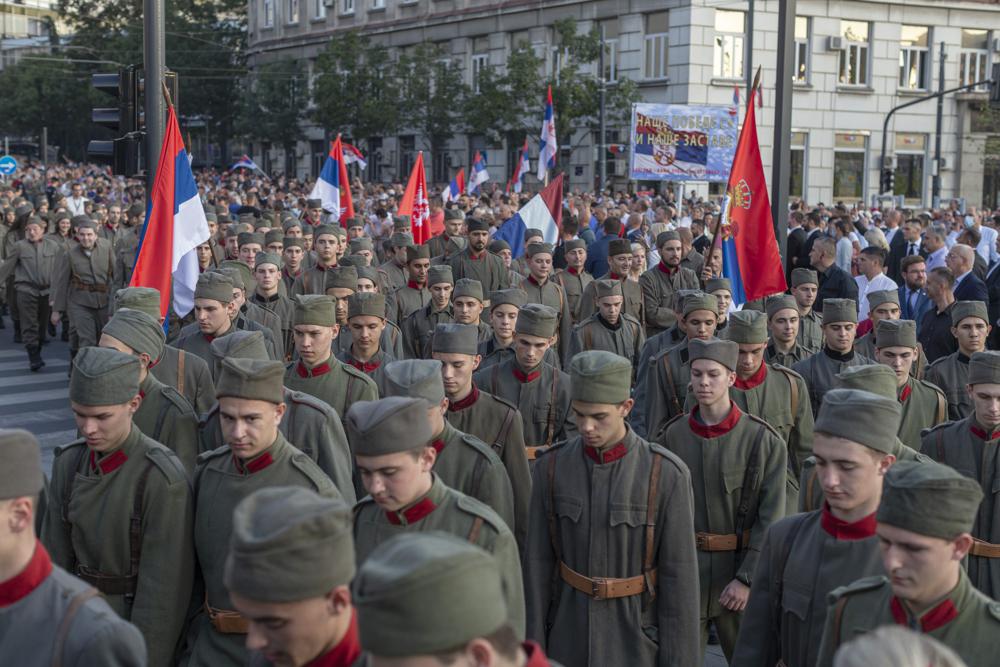
Serbian ‘Unity Day’ provokes tensions in the region
The Serbian and the Bosnian Serb Parliaments approved nearly identical laws promoting the Cyrillic scripts on 15 September, a move aimed at uniting Serbs in the region. The laws were approved during a new national day, the “Day of Serbian Unity, Freedom and National Flag”, during which leaders in Belgrade urged Serbs throughout the Balkans to display the Serbian flag. Military parades in the Serbian capital also marked the day. Observing the events in Serbia, critics draw parallels with the ‘Greater Serbia’ ideology, while politicians in Montenegro and Croatia harshly criticised those actions, speaking of “provocations.”
Balkans Insight, Radio Free Europe, France Presse
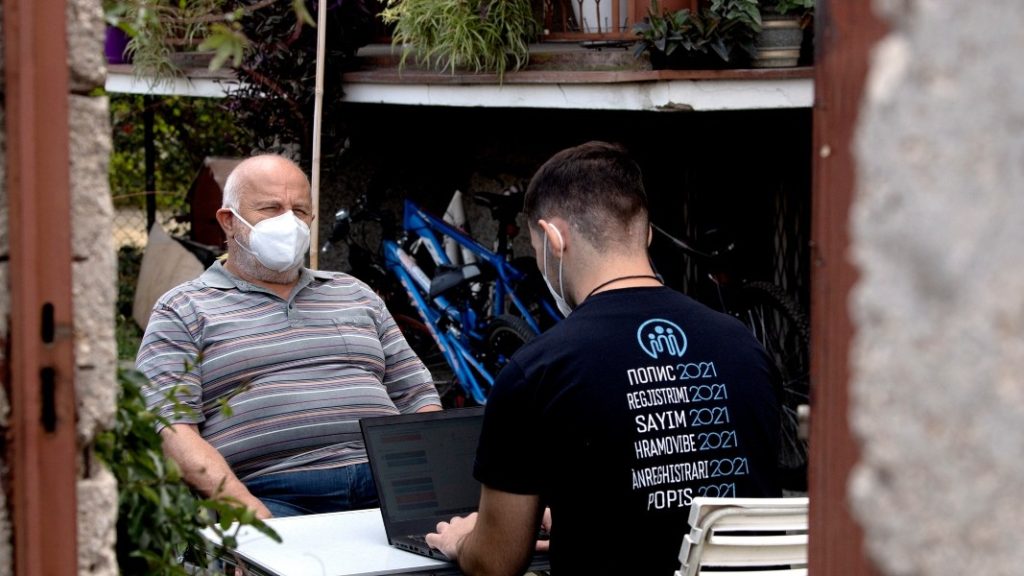
North Macedonia launches the first census in two decades
In September, North Macedonia launched its first census in almost twenty years. The last census was conducted in 2002, after a short but violent armed conflict between security forces and Albanian separatists. The count is relevant for determining the number of residents in a country plagued by emigration and for the complex quota systems that regulate public life in the country. The language used in official correspondence between the state and a citizen and ethnic quotas for public administration jobs depend for instance on a minority being officially shown to make up at least 20 per cent of the population. According to the last census, around 64 per cent of the population in North Macedonia declared itself as ethnic Macedonian, 25% as ethnic Albanian.
France Press, Balkan Insight
Monthly Analysis
ENERGY FROM COAL KILLS THOUSANDS IN THE BALKANS. CHINA PLEDGES NOT TO FINANCE
NEW PROJECTS
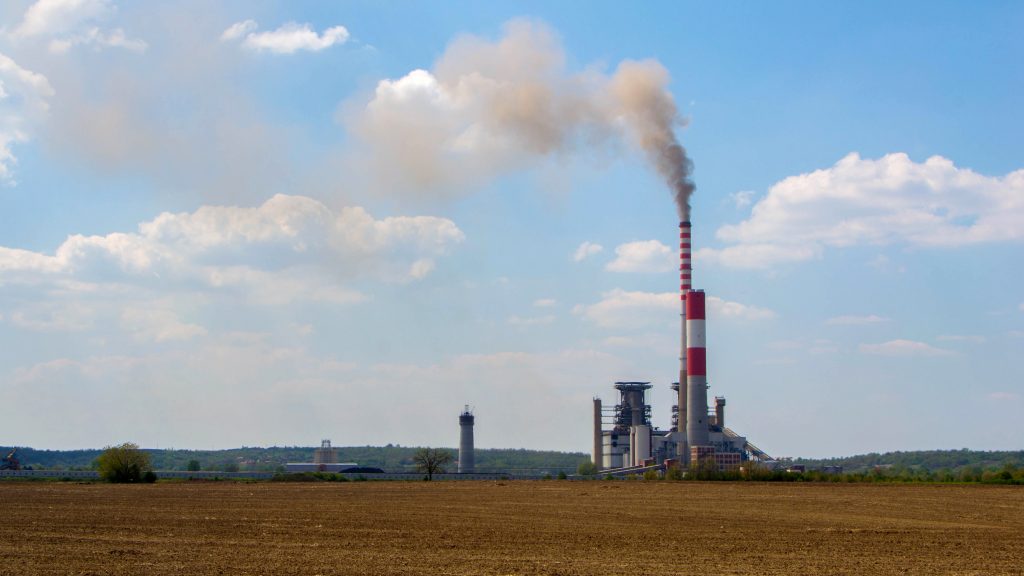
The lives of millions of people in the Balkans are negatively affected by political divisions, the scars of the last wars, and economies still lagging. Energy – particularly the production of electricity – is also one of the critical issues for the region’s present and future, with immediate consequences for neighbouring countries that are already part of the EU.
A new report this month suggested that authorities in the Western Balkans should focus on a fast transition from the production of electricity from coal, common in most countries in the region, towards sustainable energy systems. In the study ‘Comply or Close’, CEE Bankwatch Network and the Centre for Research on Energy and Clean Air said that almost 20.000 people have died over the past three years in the Balkans and the EU as a result of air pollution from coal-fired power plants active in Serbia, Kosovo, Bosnia and Herzegovina, North Macedonia and Montenegro.
In the region, there are currently 18 coal-powered power plants which, according to several studies, emit together two and half times as much sulphur dioxide as all 221 coal power stations in the EU together. And electricity generated by coal plants in the Balkans and traded with the EU produced as much SO2 as half of the EU’s coal power plants combined.
Countries in the Western Balkans are still not part of the European Union but are obliged to comply with the so-called EU ‘Large Combustion Plants Directive’. The directive, binding for the Energy Community parties, aims to reduce air pollution from power plants. However, according to the study, Balkan power plants in the past three years have continued emitting SO2 levels six times higher than the legal limits. Moreover, they failed to comply with the pollution limits set by international and national regulations.
While street protests against pollution are becoming common in the region, public health consequences are also dire. The modelling used for the report shows that nearly 19.000 deaths occurred from 2018 to 2020 due to the total emissions of coal-fired power plants in the Western Balkans. Out of the total, more than 50 per cent were registered in EU countries, in particular in Romania, Greece and Hungary, almost 30 per cent in the Western Balkans and the remainder in other countries. The total emissions of coal power plants resulted in costs between 25.3 billion and 51.8 billion euros both in the Balkans and the EU.
Some countries in the region recently pledged to phase out coal in the next decade. North Macedonia could be the first in the Balkans to abandon coal by 2028, followed by Montenegro in 2035, while Serbia excluded to abandon coal for now. However, the report stressed that the phaseout should be quicker, and the EU should help the Balkans move beyond coal. “Those Western Balkan governments which have not yet done so, must set a date for an urgent coal phaseout”, said Davor Pehchevski, Balkan Air Pollution Campaign Coordinator at CEE Bankwatch Network.
China could indirectly facilitate the phaseout. The Chinese President Xi Jinping announced this month that Beijing “will step up support for other developing countries in developing green and low-carbon energy, and will not build new coal-fired power projects abroad”. The announcement could have an impact also in the Balkans, a region where China used loans and investments in energy and transport to reinforce its strategic presence. Several Chinese companies are constructing or modernising thermal power plants in the region, such as Kostolac B in Serbia and Ugljevik 3 and unit 7 at the Tuzla coal-fired plant, in Bosnia, this being one of the most significant investments in the country since the war. In the past years, Western Balkan countries have scaled up the expansion of coal power with a total of 2.3 GW of projects in which Chinese banks and state-run companies are involved.
The Insight Angle
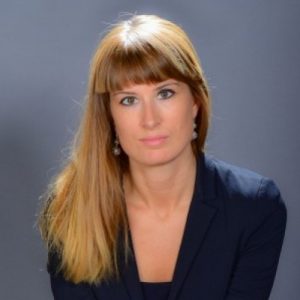
TENA PRELEC
Research Fellow, Department of Politics and International Relations (DPIR), University of Oxford; Member of the Balkans in Europe Policy Advisory Group (BiEPAG); Research Associate, LSE; and Region Head, Oxford Analytica
New tensions erupted in the Balkans this month. Do you think the country is headed towards further destabilisation?
The helicoptered, riot-police-guarded enthronement of the new Metropolitan in Montenegro is not a scene that will be forgotten soon. A highly manipulated event, it has nevertheless affected the hearts and minds of most Montenegrins, including those who try to resist the increasing polarisation. Considering the circumstances, it is quite a feat that no one died during the event.
Montenegro is already unstable and is going to remain so for a while – instability has become the norm. The former ruling party, the DPS, is doing everything they can to return to power, after losing control over the executive at the August 2020 elections. Milo Djukanovic, who is still the President of Montenegro as well as the leader of the DPS, is afraid that he might end up in jail. He is most likely preparing an exit strategy in case things go south for him. In the meantime, a battle of narratives is playing out through the media. The intent is well-known: presenting Djukanovic and his party as the only beacon of pro-Western stability in Montenegro, sweeping under the carpet the warmongering and war waging role this same cohort of people had in the 1990s. Djukanovic needs destabilisation so he can come back on a white horse as the saviour, showing the existing government as being inadequate and anti-Western, while reasserting himself as the only person who can govern the country. Only, this time tensions are upped a gear. The Serbian government and its associates participate in this dangerous game of rising tensions.
What about Serbia and Kosovo? Protests were sparked in the North because of the issue of licence plates, the dialogue between Belgrade and Pristina is stalled. What can we expect on this front?
It will remain stalled. It is not in neither Vucic’s nor Kurti’s interest to resolve the issue. In the absence of a viable resolution that will give him the status of an historical peacemaker, Vucic wants the Kosovo issue to simmer so he can ‘activate’ it should he start having internal problems, using it as a way to distract people and change the mood music inside Serbia. Kurti, on his part, has stated at the beginning of his premiership that the dialogue with Serbia will be given a lower priority as opposed to making inroads into more urgent matters such as the fight against corruption, economic development and inequality. We are yet to see these substantial inroads. In the meantime, instead of decreasing the temperature, his government is also contributing to heating up the tension in the country. At the losing end, there are, once again – the citizens.
Albania and North Macedonia are still waiting for the final green light for opening accession negotiations with the EU. Do you think the Slovenian presidency will succeed in overcoming the Bulgarian veto? If not, could we expect some progress under the French presidency of the EU?
The Slovenian presidency of the EU runs until 31 December 2021. Bulgaria has elections on 14 November, both presidential and parliamentary. Until then, nothing can happen on unblocking the North Macedonia issue. After the elections there may be some movement, but it is unlikely to be significant, given it might take a long time to form a government in Sofia, where the polls are predicting a stalemate in Parliament at present. Nothing much is likely to be resolved by 31 December given the political uncertainty in Bulgaria. Overall, there is the understanding from the EU’s side that this situation is unacceptable, but there are no solutions at hand. Until the veto power is taken away from EU member states, by implementing qualified majority voting, arbitrary blocking due to bilateral issues – rather than on the merits of the accession process – will continue in one form or another.
Are you concerned about the situation in Bosnia and Herzegovina (BiH), where Bosnian Serbs are still boycotting the work of central institutions over the law forbidding genocide denial? Could Bosnia become the next epicentre of a turmoil in the Balkans?
In the early summer, the outgoing High Representative, Valentin Inzko, sang his ‘swan song’ by using his powers to declare genocide denial a crime, punishable with up to 5 years of prison. The response by Milorad Dodik, Republika Srpska’s chieftain and Serb member of the tripartite presidency of BiH, was fast: he announced he would boycott the central institutions, and went even further by saying that the police of Republika Srpska will protect those who are indicted on the basis of this new law. In spite of some Bosnian politicians, Izetbegovic in primis, downplaying this move, in my view, the boycott itself is real: Dodik will not hold back from blocking BiH institutions for months or even longer to show his voters in the region that he will defend the Serbian ‘nation’. This has already happened in the past: the Bosnian federal government had to wait even up to a year and a half to be formed due to him blocking its formation. More importantly, Vucic might want to activate this issue for his own political interest. It is enough to look at the recently invented ‘Holiday of Serbian Unity’, and the Bosnian Serbs seem ready to play along at the drop of a hat, should they get a prod from Belgrade. But for them to do so they need outside support, either from Serbia or Russia, which, in my view, does not see this as a priority in any way. However, Bosnia and Herzegovina might be useful to Vucic at some point when things get difficult for him in Serbia. I think that any attempts to counter these tendencies of rising tensions should take a long-term view, especially by countering attempts to radicalise and indoctrinate the younger generations.

Stefano Giantin
Journalist based in the Balkans since 2005, he covers Central- and Eastern Europe for a wide range of media outlets, including the Italian national news agency ANSA, and the dailies La Stampa and Il Piccolo.

